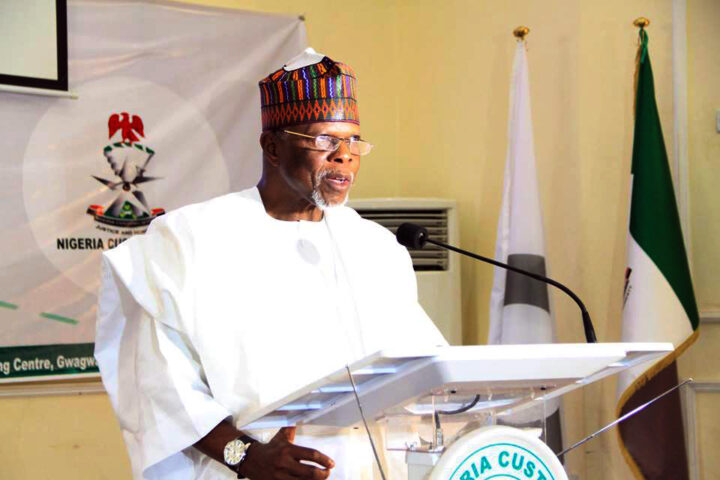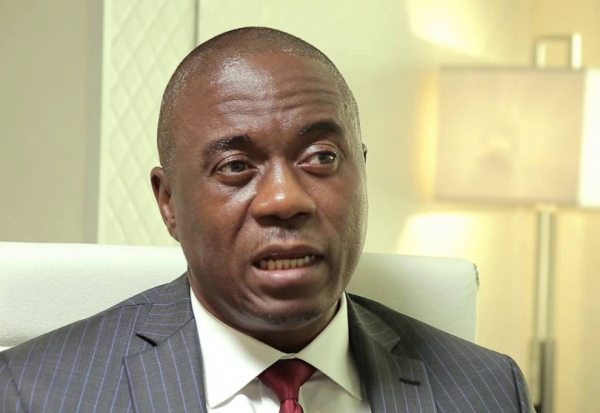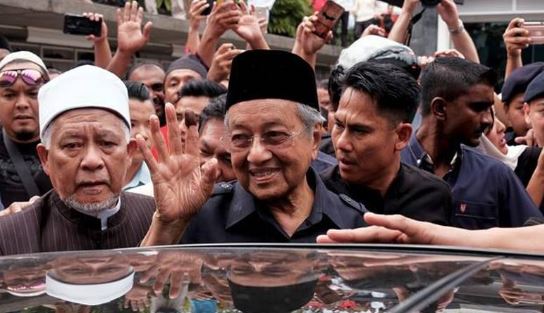In May 2008, former President Olusegun Obasanjo was summoned by the house committee probing the expenditure on power sector between 1999 and 2007 when he was in office. His successor, Umaru Musa Yar’Adua, had alleged that Obasanjo’s administration spent $11 billion on the sector “with nothing to show for it”. This prompted the probe, with the alleged figure rising to $16 billion. TheCable reproduces below the full response of Obasanjo to the allegation in a letter dated May 12, 2008 which he sent to the house committee on power and steel.
The Chairman and Honourable Members of the House of Representatives Committee on Power and Steel, I thank you for your letter of the 3rd of May 2008 received on the 9th of May 2008 inviting me to appear before you. In the said letter, you said that the invitation was to give me “a fair hearing on allegations and counter-allegations which were made behind me in respect of my role in the execution of projects in the power sector from 1999 to 2007″.
Your letter which came to me on the 9th of May 2008 inviting me to appear on the 12th of May 2008 (the 10th and 11th being Saturday and Sunday respectively) did not specify or include details of the particular allegations and counter-allegations made before you by some persons who appeared before you to which you want me to reply or respond.
As much as I would like to assist your investigation, fair hearing which you referred to demands that these particulars ought to be forwarded to me and adequate time ought to be provided for me to prepare before appearing before you. The need for adequate time becomes more imperative since I have left the government since 2007 and I have no access to government data and information which are in the custody of the government.
Advertisement
It is my view that your task is not an easy one and nothing should be taken for granted. Since you have taken it upon yourselves to strengthen our practice of democracy which was re-established in 1999, and for which I was a key participant and nourisher between 1999 and 2007. As a democrat, I will like to do whatever is possible within the Constitution, the law and decency to help as you establish a new precedent of investigation and putting searchlight on the executive actions and duties after office. It is a precedent that may serve the country well or serve the country not so well. It is seen by me as healthy for our young democracy if it is carefully, fairly, justly and honestly carried out. I will hope that my response to your invitation will not be taken as precedent for other former Presidents to be so invited in future. It may be regarded as being in bad taste and that may be right. I chose to be here not because I see it as compulsory or mandatory. It is absolutely voluntary.
In general sense, democracy is a system of government in which the ultimate power rests with the people. In institutional sense, it is a system in which powers are divided or shared among institutions: Executive, Legislative and Judiciary. With the concept of democracy and good governance, we have a system based on good leadership, respect for the rule of law and due process, accountability and transparency. Your task must be to enhance these pillars of democracy and good governance and I am here just to assist you in doing that as a means of continued nurturing of our young democracy. Having said this, no institution of government should use its power to prevent or hinder the other institutions of government from being able to function properly, effectively and appropriately. I appreciate Section 88 of our Constitution which says that the National Assembly has powers to investigate any matter in which it can make laws for the purposes of making law, and that power and energy is part of such laws.
However, in Section 148, the President has power to grant executive responsibilities to ministers, to hold regular meetings with ministers for determining the general direction of domestic and foreign policies and to coordinate the activities of ministers in the discharge of their executive responsibilities. The President leads a team and galvanises, mobilises and inspires that team into action. What I am saying here is that the privilege and the collective responsibility of the members of Executive Council must not be hindered by the way the National Assembly carries out its function, otherwise it may be difficult, if not impossible, for the Executive to carry out its domestic and, certainly, its foreign duties, policies and responsibilities.
Advertisement
COLLECTIVE RESPONSIBILITY
Each institution should carry out its functions in such a way to enhance its own performance and the performance of other institutions of Government. Going on from this point, I could say that having granted executive responsibilities to the minister responsible for power and, believing in the concept of collective responsibility of the Executive Council, I do not need to appear before your Committee since the Ministers responsible for Power and Finance have appeared on their own separate behalf and on behalf of the Executive Council. I have chosen not to go that way because I, personally, believe that we must all carefully, justly, fairly, sincerely and honestly continue to nurture and strengthen democracy, if the exercise you have embarked upon is not working to a pre-conceived answer.
May I draw your attention to the letter of 3rd of May received on the 9th of May headed “Invitation to Appear at the Public Hearing on the Power Sector”. I observed that the letter was not authored or signed by the Chairman of the Committee, Hon. Ndudi Godwin Elumelu. The signature is that of one Sahmed. As a matter of comment, I believe that courtesy and decency will suggest that a letter from any Chamber of the National Assembly to me as former President of this country, on a matter of this nature, will be signed by the head of the chamber concerned on behalf of the Committee or the Clerk of the National Assembly or, at the minimum, the Chairman of the Committee itself and not by a third party.
For the reason of the way and manner your invitation came as well, I may choose not to appear and merely object to the manner of invitation. Again, I have chosen not to go that way. As Africans, we must respect age and authority. It is also a product of birth and breeding in an African culture. I hope members of the Committee will have something to learn from this exercise. Be that as it may, let me go to the points that will “give an insight and perspective into what” I know and my role in the execution of projects from 1999 to 2007.
Advertisement
What was the position of Power in May 1999 when our Administration took over? The following is the summary:
1. Non-serious investment in generation and transmission between 1981 and 1999, a period of eighteen years, except the completion of Jebba and Shiroro hydro power plants which my military administration began and Egbin thermal plant initiated also by military administration all of which were completed by President Shehu Shagari administration. And yet, for a developing country like Nigeria, we should be increasing the rate of our power generation as close to the rate of our population increase as possible. Our Administration thereby inherited eighteen years of non-investment in power generation and seeming apparent neglect of the sector. Serious determination to understand where we are and how we are in the power situation today must understand this background.
2. Although 6000 MW capacity was claimed in 1999, only 1500MW was being generated. Ijora and Oji River thermal based on coal have completely closed down for lack of coal production and early gas thermal units at Afam and Delta were obsolete and needed replacement.
3. The hydro power plants of Kanji, Jebba and Shiroro suffered seriously from silting and/or inadequate flow of water into the dam and poor maintenance.
Advertisement
4. The Egbin thermal unit suffered from disruption of gas supply through vandalism and poor management and maintenance by NEPA staff.
5. Because the transmission system was not a closed loop, any disruption by vandalism or any other cause meant power would totally be cut off from the part of the country affected.
Advertisement
6. NEPA was a den of monumental corruption and malpractice which were deep and widespread and revenue generation was grossly below expectation. There was massive illegal connection and avoidance of payment of bills.
CLOAKED IN MYSTERY
Advertisement
This situation was not thoroughly understood, identified and clarified until after the first two years of my first term. Late Chief Bola Ige, who was my first Minister in charge of power and who, by any standard, was a bright and smart person, thought he could deal with the problem of power within six months and he made such public pronouncement to the world. But after twelve months, he could not unravel, in details, the problems of NEPA let alone proffer a satisfactory solution. It was not because he did not try, but rather it was because NEPA was cloaked in near mystery.
After late Bola Ige was moved to Ministry of Justice, Dr. Segun Agagu took over and, with him, I paid a little more direct attention to the power issue. I was surprised, after one year, to discover the situation described above.
Advertisement
With such discovery, we sprang into action. First, NEPA leadership had to be changed and we brought in an accomplished Engineer from the private sector in person of Engr. Joe Makoju to assist with giving the organisation the leadership it lacked and to shape up the entire structure of organisation and change their attitude and orientation. The aim was to sanitise and reposition NEPA to perform its roles, functions and duties to the nation. Then, we started to tackle the issue of repairs, maintenance and replacement.
In replacement, we started with Afam where a new 276MW thermal unit was installed and commissioned.
We requested the Oil Companies to join in providing power to sell to NEPA. Mobil Oil started talking to us locally but due to lack of interest from their Headquarters in the US, they gave up. In spite of all efforts in this direction, only Agip Oil showed enough concern and commitment to build a 480MW thermal unit with transmission line to the grid system which I commissioned at Okpai. Until I left government in May 2007 and, in spite of pressure on the Oil Companies, no other Oil Company made commitment in this regard to the point of commissioning. It must also be mentioned that the delay in getting the Energy Regulatory Bill passed by the National Assembly also contributed, in some way, to the private sector slow commitment to power generation. In spite of power being on the concurrent list in our Constitution, only Rivers State paid serious and appreciable attention to power generation and transmission, Akwa-Ibom followed later with Federal Government support.
POOR REVENUE
Meanwhile, we embarked on building thermal units in four locations where existing gas pipelines are sufficiently close to minimise cost of gas provision to these sites. These sites or locations are Papalanto, Omotosho, Alaoji and Geregu. Each of these sites could be made to ultimately provide close to 1000MW. It must be remembered that the first term of our Administration started with the price of oil at $8 to $9 per barrel. Our budgets were not realised due to poor revenue intake from oil. For these four locations, we had to seek loan from China at concessionary rate to support two of the sites. Three of these sites – Gerengu, Omotosho and Papalanto – were built to the point of commission before I left government in May 2007.
As at today, Papalanto, Omotosho and Geregu are generating power for the grid. Gas pipe vandalism has affected them all. Since they were to be expanded, there was work continuously going on for adequate gas provision, transmission and additional turbines to reach the ultimate magnitude or capacity of about 1000MW each. The problem of vandalism of gas pipelines remains with them as with Egbin.
During our Administration’s first term and going into the early part of the second term, we studied all the available and possible sources of power and energy. These include solar, wind, tide, biomass, thermal from gas, thermal from coal, thermal from nuclear and hydro. We realised that technology for mass production of power from solar, wind and tide is still some distance away, and, therefore, the unit cost is prohibitive. They will do for smallholding or domestic use and we instituted concessionary policy to encourage such domestic or small-holding installation and use.
For large scale power production, we are left with thermal from gas, thermal from coal and hydro. We set for a twenty-year programme of nuclear energy only after we have almost exhausted what we can obtain from other thermal sources. After a visit to Omoku where Rivers State was building a thermal unit close to an Agip gas source to eliminate long distance gas pipelines that could be subjected to vandalism, we embarked on the study and search for similar available gas sources close to which other thermal plant could be located. Six of such sites were located at Sapele (Delta), Ehobor (Edo), Egbema (Imo), Gbaram (Bayelsa), Calabar (Cross River), Omoku (Rivers). That is the beginning of what is today called NIPP. It would be short in gas pipelines but might be somewhat long in transmission to grid line.
We have to coordinate and harmonise five aspects of the building of generation and evacuation unit in each site – turbine, gas provision, civil works, electrical station and transmission or evacuation. Unless all these are synchronised and brought together, expenditure on four, leaving out one as uncompleted, will still leave out power generation let alone having the power at our homes and factories. No matter what resources you may have, it will take a minimum of three years, if there are no interruptions or disruptions and with hard driving, to complete any one of these units. Without hard driving and with any disruption, it may take up to five years or more.
Add a comment






